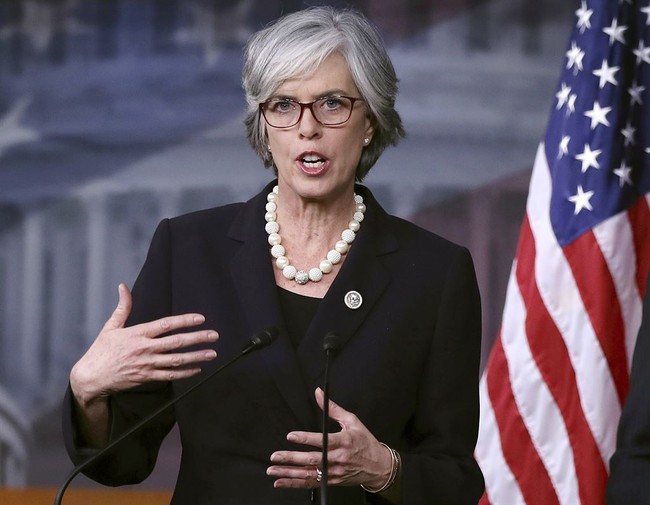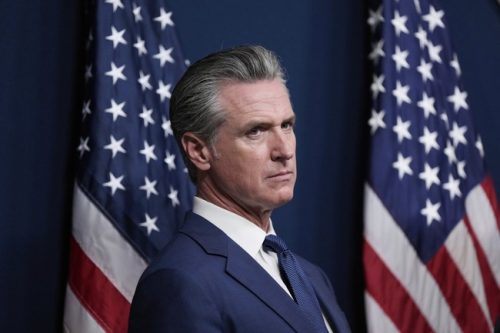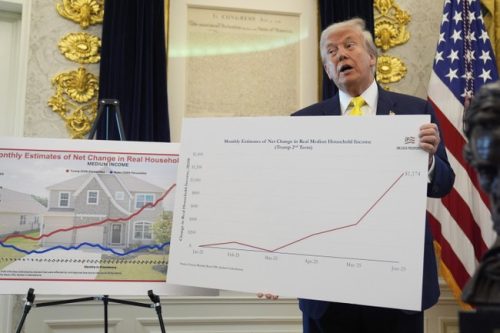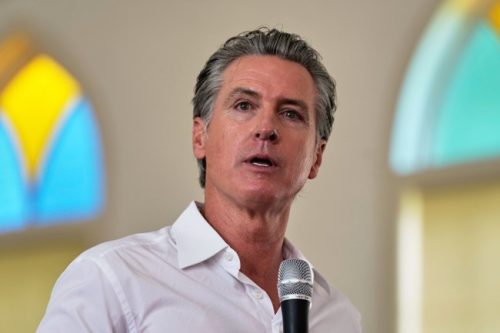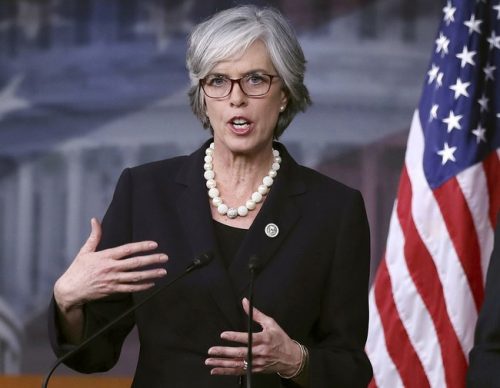The shutdown fight has become a clear example of political theatre: Democrats are using federal pain as leverage, while Republicans keep offering clean, simple fixes to reopen government. This piece looks at how a top House Democrat admitted that families will suffer but framed that harm as leverage, the media’s attempt to soften the admission, and why voters are blaming Democrats for a self-inflicted crisis.
Democrats entered this fight without a coherent message and with policy demands that many voters find out of touch, like $1.5 trillion earmarked for broad spending priorities and expanded health benefits for illegal immigrants. That combination makes it easy for opponents to paint them as prioritizing agenda items over ordinary Americans. Republicans, by contrast, have repeatedly proposed a clean continuing resolution to reopen the government and restore services.
When Rep. Katherine Clark (D-MA), the House Minority Whip, was recorded discussing the political calculus, the moment sounded like honest confession. Her title and role give weight to what she said, because she speaks for leadership during a tactical standoff. The tape exposed the reality that some Democratic leaders view shutdown pain as leverage rather than a last resort.
🚨 HOLY SMOKES! In a SHOCKING MOVE, the number two House Democrat Katherine Clark said the quiet part out loud regarding the shutdown…SUFFERING is their tool
"Of COURSE there will be families that are going to suffer! […] It is one of the FEW leverage times we have."
— Eric Daugherty (@EricLDaugh) October 22, 2025
“Of course, there will be families that are going to suffer. We take that responsibility very seriously, but it is one of the few leverage times we have,” she said.
After the clip circulated, the damage-control routine kicked in and the same outlets that amplified the tape began insisting the remark was misconstrued or taken out of context. That pattern is familiar: a raw admission gets amplified, then repackaged as nuance once the political fallout begins. The public sees the original words and the spin, and it erodes trust.
There is no elegant way to dress up a choice that knowingly harms families for political advantage. Voters don’t respond kindly to being told their pain is a bargaining chip, and that unfiltered reality explains a lot about public sentiment right now. Meanwhile, Republicans keep pressing for straightforward fixes while Democrats hold out for broader policy wins.
No, there’s no way to spin that away. The admission read like a blunt description of tactics: cause disruption, use the resulting pressure, and hope the political calculus favors your side. It is stark and cynical to admit that some people will suffer, even as you claim to carry that suffering responsibly on their behalf.
The strategic use of federal hardship as leverage is risky politically and morally. Public servants and the families who rely on government paychecks and programs are not bargaining chips; they are real people with bills and needs. Framing their distress as leverage is a political strategy that can backfire at the ballot box.
Republicans have offered a clear, simple path to end the shutdown: reopen government via a clean continuing resolution and negotiate policy on the merits. Those offers keep getting rejected, which only deepens the narrative that Democrats prefer negotiating with pain. That insistence on tying must-pass functions to expansive policy demands fuels voter frustration.
Polling and public reaction show the cost of that strategy. As the shutdown grinds on, blame is increasingly attached to those who block routine fixes, and that dynamic favors the party pushing for reopening. Political theater can win headlines, but it often loses votes when families feel the fiscal sting.
This episode also highlights the media cycle: capturing an unguarded moment, then trying to reframe it once the optics turn against favored actors. The replay-and-excuse routine doesn’t erase the original admission; instead, it amplifies the perception of a double standard. Voters see both the comment and the subsequent backpedal, and they decide which version rings truer.
At the center of this fight is a simple choice: reopen government to relieve immediate harm, or keep it shuttered to force broader policy concessions. Republicans are arguing for the first option and pointing to the human cost of the second. That argument is resonating because when livelihoods are on the line, voters prize solutions over posturing.

